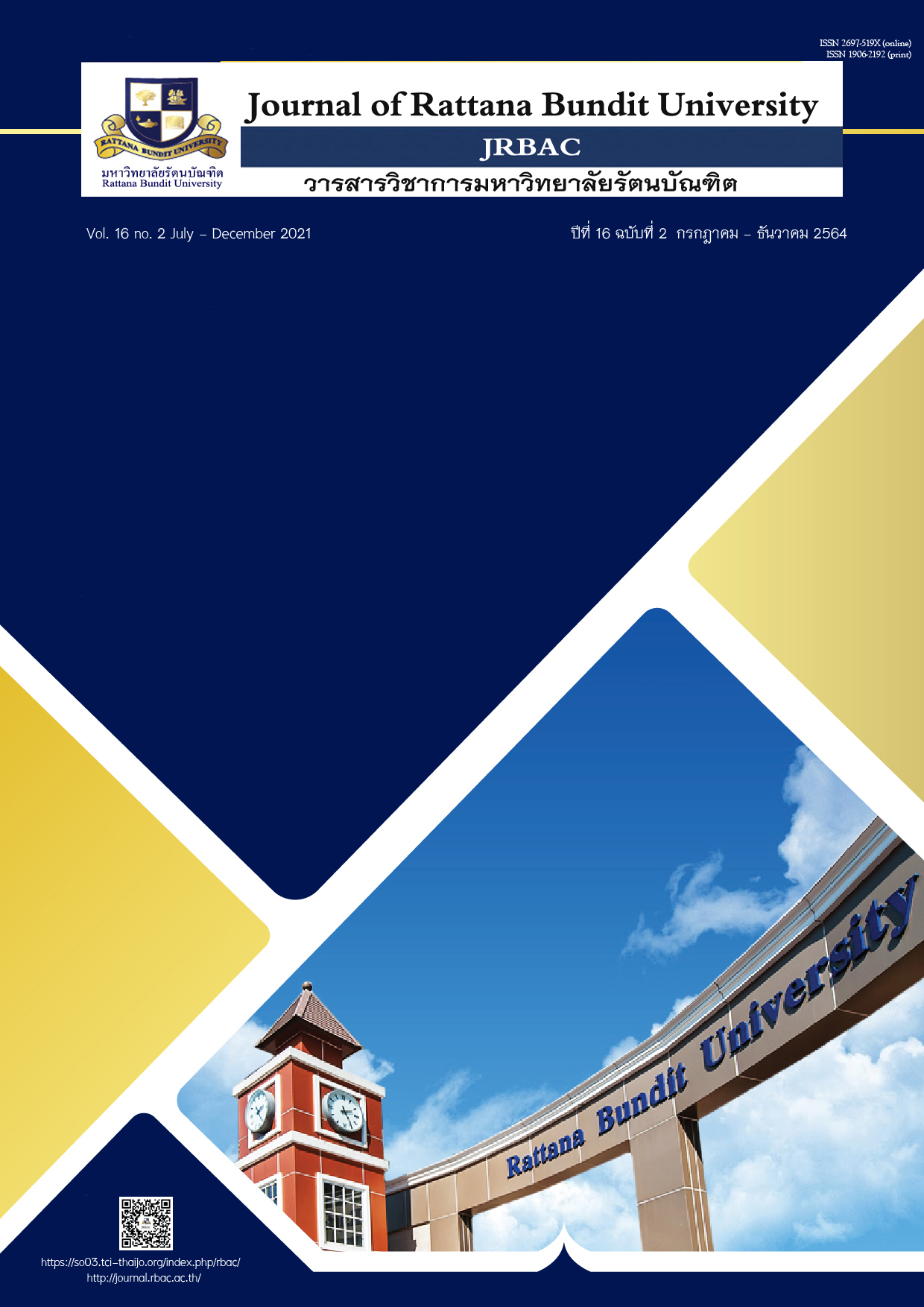The Needs of the Development of Essential Skills for Primary Teachers in Saraburi Province.
Main Article Content
Abstract
This research aimed to study: 1) the current and desirable states of the development of essential skills for primary school teachers in Saraburi province, and 2) the needs of the development of essential skills for primary school teachers in Saraburi province. The sample group of this research consisted of 359 administrators and teachers in Saraburi province, by using random stratified random sampling. The research instrument was a set of dual response questionnaires. The data were analyzed using descriptive statistics, percentage, mean, standard deviation, and Priority Needs Index. The research revealed that: 1) the current state of developing essential skills for primary school teachers was at the high level ("X" ̅=4.34, S.D.=0.59), 2) the desirable state of the development of essential skills for primary school teachers was at the highest level ("X" ̅=4.83, S.D.=0.40), and 3) the needs of the development of essential skill for primary school teachers were respectively sorted descending order of the needs as follows: 1) Creativity and Innovation 2) Communications 3) Life and Career Skills, 4) Digital Citizenship, and 5) Teamwork.
Article Details
References
Atpaksa, S. (2014). The needs assessment to self-development of teachers, Ratchaburi private education schools (Master’s thesis). Silpakorn University, Bangkok. (in Thai)
Bellanca, J., & Brandt, R. (2010). 21st Century skills: Rethinking how students learn. Bloomington, IN: Solution Tree.
Buaraphan, K. (2012). Assessing 21st century skills. Institute for Innovative Learning, Mahidol University, Nakhon Pathom. (in Thai)
Chaloeisap, S. et al., (2012). Information technology. Bangkok: Suan Dusit Rajabhat University, (in Thai)
Charoenwongsak, K. (2008). Analyze the factors affecting the increase of educational achievement. Retrieved from http://www.oknation.net/blog/kriengsak/2008/09/11/entry-1 (in Thai)
Charungkiatkul, S. (2018). The twenty-first century skills. Retrieved from https://www.trueplookpanya.com/blog/content/66054/-teaartedu-teaart-teaarttea- (in Thai)
Delani, H. (2019). Education for the twenty-first-century skills. Retrieved from https://www.unicef.org/thailand/th/stories/-21
International Society for Technology in Education. (2014). Standards students. Retrieved from www.iste.org/docs/pdfs/20-4_ISTE_standard_PDF
Jeenawath, A. (2016). Self-development of professional teacher. Veridian E-Journal, Silpakorn University (Humanities, Social Sciences and Arts), 9(2), 17. (in Thai)
Jindanurak, T. (2016). Professional science teacher. Electronic Journal of Open and Distance Innovative Learning, Sukhothai Thammathirat Open University, 6(1), 168-169. (inThai)
Kanjanawasee, S., Pitayanon, T., & Srisukho, D. (2008). Selection of statistics for educational research (5th ed.). Bangkok: Chulalongkorn University Printing House. (in Thai)
King Mongkut's University of Technology North Bangkok. (2014). 21st century learning skills. Bangkok: Educational Quality Assurance Center, King Mongkuts University of Technology North Bangkok. (in Thai)
Klankaew, P. (2009). A learning management model for developing thinking skills of secondary students of the demonstration school of Nakhon Sawan Rajabhat University (Master’s thesis). Graduate school, Nakhon Sawan Rajabhat University, Nakhon Sawan. (in Thai)
Metiri Group. (2003). Engauge 21st century skills for 21st century learners. Retrieved from http://www. metiri.com/21/Metiri-NCREL21stSkills.pdf
National Research Council. (2011). Assessing 21 st century skills: Summary of a workshop. National Academies Press.
Neelayothin, A. (2016). 21st Century student skills indicators for basic education: Developing a structural relationship model (Master’s thesis). Mahamakut Buddhist University, Nakhon Pathom. (in Thai)
Office of the Basic Education Commission. (2021). English language elevate policy. Retrieved from https://www.thaipost.net/main/detail/93107 (in Thai)
Panich, W. (2012). A way to create learning for students in the 21st century. Bangkok: Sosri-Saritwong Foundation. (in Thai)
Phalitphonkanphi, P. (2016). Ways to create learning in the 21st century. Retrieved from http://www.youtube.com/watch?v=S0j6Gs2wNjk (in Thai)
Prasertsin, U., Jiotrakul, T., & Thongklomsee, J. (2017). A studying guidelines of the educational innovation management used for improving teacher’s teaching and research (Doctoral Thesis). Srinakharinwirot University, Bangkok. (in Thai)
Partnership for 21st Century Skills. (2017). Framework for 21st century learning. Retrieved from http://www.p21.org/storage/documents/๒๑_Framework_Definitions.pdf
Quality Learning Foundation (QLF). (2014). Activities outside the classroom that affect the teaching and learning of teachers. Retrieved from http://www.qlf.or.th/Mobile/Details?contentId=976 (in Thai)
Ritjaroon, P. (2016). Research techniques for learning development. Bangkok: Chulalongkorn University Printing House. (in Thai)
Saraburi Primary Educational Service Area Office 1. [2020]. Annual Action Plan 2020. Retrieved from http://www.srb1.go.th/sbr1/plan63/pian01.pdf (in Thai)
Saraburi Primary Educational Service Area Office 2. [2020]. Annual Action Plan 2020. Retrieved from http://saraburi2.org/web/?module=view_memu_top&cluster_id=130&id=78 (in Thai)
Sinlarat, P. (2014). 21century skills: Must step away from the western trap. Meeting Documents, Subject" Teacher reform to the future of Thailand ". The Secretariat of the Teachers Council of Thailand. Dhurakij Pundit University, Bangkok. (in Thai)
Somabut, A. (2017). 21st learning model. Retrieved from https://teacherweekly.wordpress.com (in Thai)
Tangkitwanit, S. et al., (2013). Basic education reform for 21st century learning. National Statistical Office. (in Thai)
Thongying, C. (2016). Problems waiting to be reformed. Parliamentary Journal. Retrieved from https://dl.parliament.go.th/backoffice/viewer2300/web/previewer.php (in Thai)
Trilling, B. & Fadel, C. (2009). 21st century skills: learning for life in our times. Jossey-Bass-Wiley Imprint, San Francisco.
Wankhong, A. (2016). English Teaching in the 21st century. Journal of Yanasangvorn Research Institute Mahamakut Buddhist University, 7(2), 7. (in Thai)
Wangmichongmi, C. (2017). Competency of Thai teacher in 21st century: wind of change]. Journal of HR Intelligence, 12(2), 47. (in Thai)
Wongwanich, S. (2007). Needs assessment research. Bangkok: Chulalongkorn University Printing House. (in Thai)
World Economic Forum. (2015). 21st Century skills. Retrieved from http://www.mfa.go.th/business/th/customize/16480-ภูมิหลัง-WEF.html
Youngs, H. (2018). Develop and upgrade the 3R8C to become a leader in support of Thailand 4.0. Retrieved from http://www.thaitribune.org/contents/detail/305?content_id=33074&rand= 1533394124 (in Thai)


